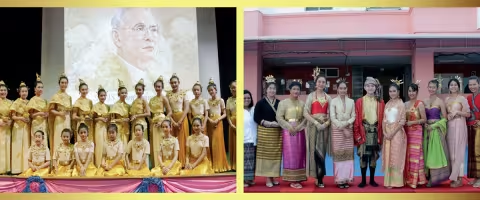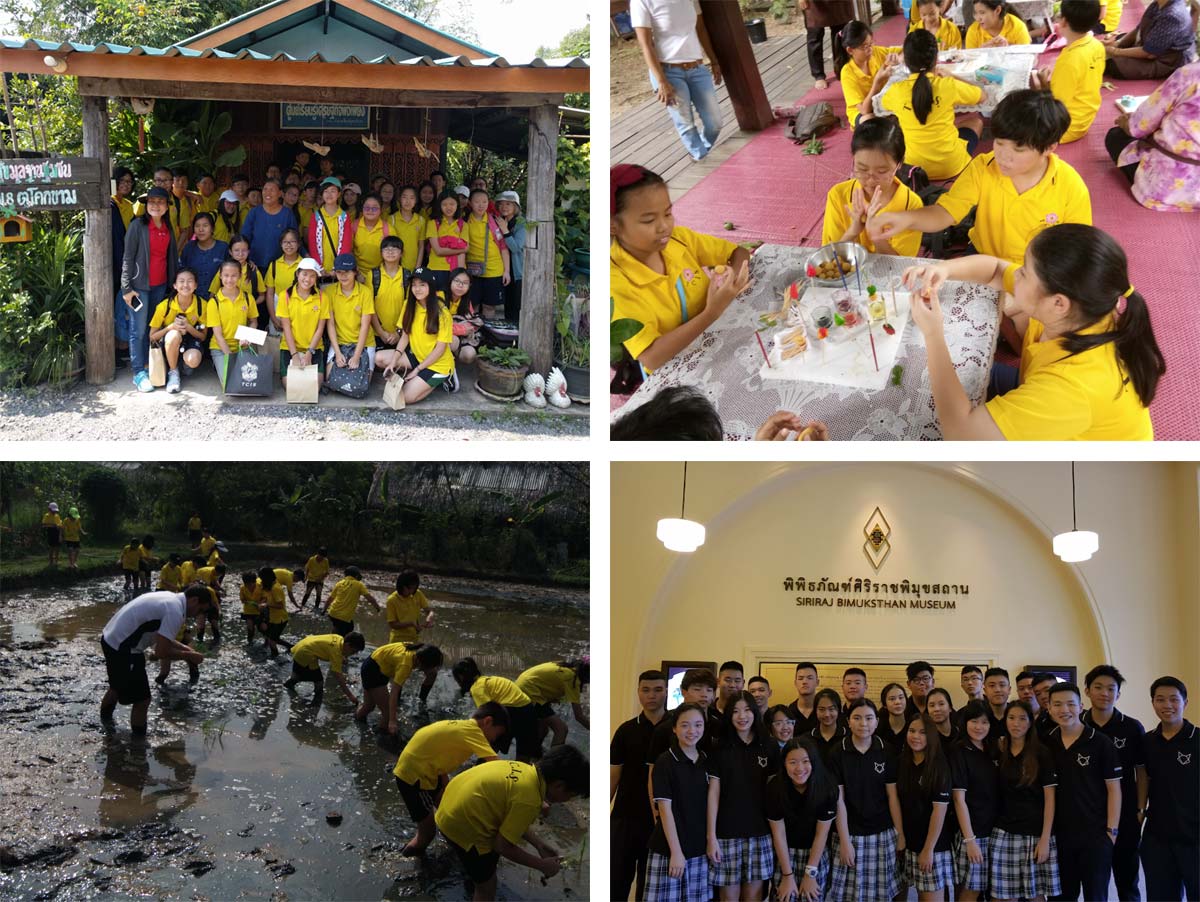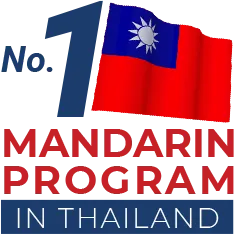
Thai Language and Culture
Thai linguistic and cultural excellence is assured by eight licensed native Thai teachers in a department overseen by a dedicated department head. Our students learn Thai from PK through grade 12, instructed in the Thai Ministry of Education (M.O.E.) curriculum in classes that differentiate between Thai and non-Thai speakers.
Our Thai curriculum features a vigorous program clearly detailed in the elementary school, middle school and high school with students learning the Thai language and culture more than four hours per week.
Academically, students begin learning Thai in PK and thereafter in differentiated classes, ranging from beginning Thai to native-speaking articulation in elementary and secondary levels. In high school Thai I, II, III, IV and Thaispeaker level are all offered. The Thai curriculum features listening, speaking, reading and writing. To graduate, Thai native speakers are required to take four years of Thai and non-Thai speakers need two years.
Students aptitude in Thai is regularly challenged through TCIS’s own Thai Knowledge Bowl, as well as external Thai competitions and testing.
Students’ Thai experience goes well beyond linguistics. In lessons instructed in English and Thai, students have hands-on classes in art, music, history and cuisine. These cultural skills are celebrated throughout the year with student presentations on Mother’s Day,Wai Kru, Loy Krathong, Father’s Day and Songkran. Students also go on a variety of feld trips around Thailand to experience Thailand’s rich history frst hand.
At TCIS we teach the fve moral precepts as well as the eight desirable characteristics articulated by the Thai M.O.E.: love of nation, religion and king; honesty and integrity; self-discipline; avidity for learning; self-sufciency; dedication and commitment to work; cherishing Thai-ness; and public mindedness.
Our Thai program:
- Develops students’ Thai language ability as a powerful tool for communication
- Enriches students’ lives by helping them to better understand Thai culture and the world around them
- Leads students to an appreciation of the beauty, richness and value of Thai language and culture
- Educates students in such a way that they enjoy the learning process



